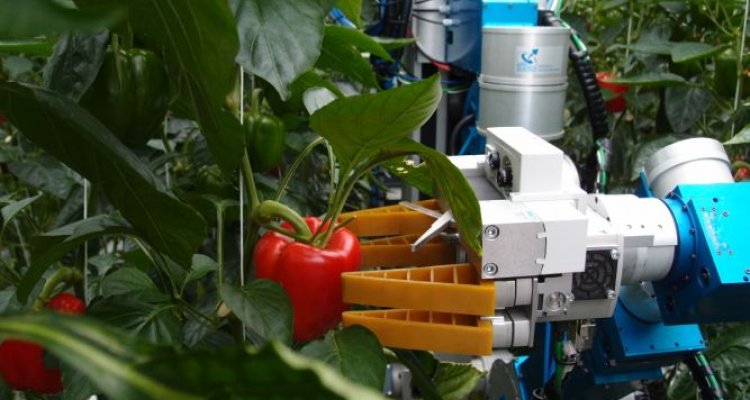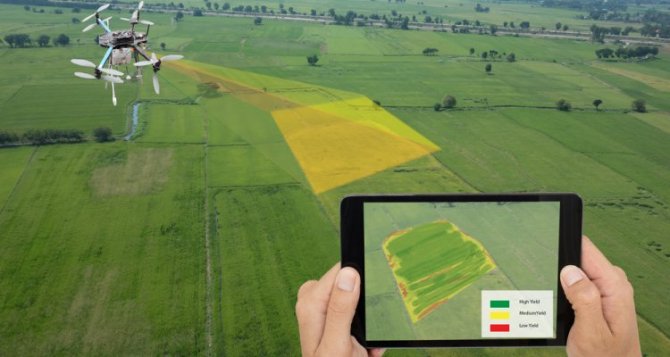
News
“If you find the right partners, your impact will grow substantially”
A lot is happening at Wageningen University & Research in the field of artificial intelligence. It is far too valuable to keep to ourselves, according to Ben Schaap (41), data science alliance manager at the Wageningen Data Competence Center (WDCC). "I know what is going on at Wageningen in terms of data, and I can link it to national and international initiatives.”
What does a data science alliance manager at the Wageningen Data Competence Centre do exactly?
“It sounds more complicated than it is. In short, there are numerous national and international initiatives in the field of data science and artificial intelligence. My role is to optimally connect them to WUR's expertise areas such as agriculture and nutrition or to initiate new collaborations. If you can find the right partners, your impact will grow substantially.”
A lot is happening in the Netherlands in the field of AI, but structural investments are lacking.
So you are a kind of liaison on behalf of WUR?

"You could say that, because it is quite a complex playing field. Especially in the Netherlands, where a lot is already happening in terms of data and artificial intelligence, but national coordination is still in its infancy. The Dutch AI (artificial intelligence) Coalition, which includes hundreds of businesses, universities, hospitals, and other stakeholder organisations, was launched last year. That is a huge step forward, but it is — fittingly for the Netherlands — a polder model. Together, we must convince the government to invest in AI: the proposal for a €1 billion growth fund is now awaiting approval in The Hague. France, for example, is much more advanced: three years ago, President Emmanuel Macron had already allocated 1,5 billion."
What is your role in the national coalition?
"I am leading the Dutch AI Coalition’s agriculture and food division, one of the thirteen application areas, which also includes health and defence. I got that position because WUR is already very advanced in applying AI in research. Examples include a robot that can harvest peppers, sensors that can recognise weeds, and autonomous greenhouses in which the growing process is fully automated. Or an app that tells you what to put in your basket when you are in the supermarket, based on your personal characteristics (such as a diabetic with a gluten allergy)."

What would you like to change at the national level on behalf of WUR?
"WUR has a leading role in the field of digitisation in agriculture and food and considers artificial intelligence as an important tool to solve major social problems, such as climate change and the loss of biodiversity. But to really use AI to produce innovative insights, such as how to reduce CO2 emissions on farms, you need to have access to a sufficient number of different data sources, and that has still proved to be difficult.
Farmers produce a wealth of data, but it is too fragmented to be used for AI.
Some farmers are engaged in precision agriculture and are already measuring all kinds of things: soil properties, the water supply — you name it. It’s a wealth of data, but it is stored in such a fragmented way that it is very difficult to make it available to AI systems. It is essential that science, practice, and policy makers facilitate data sharing.
Another obstacle to data sharing is that the rules on storage and exchange are not clearly defined. As a result, farmers are reluctant to share information about their farm. This makes sense: they do not know what will be done with it. For example, it is often unclear to individual farmers what a supplier of a machine (that works with AI) does with the data it collects: the terms and conditions are incomprehensible. We really need to address this."
How do you ensure that the Netherlands catches up?
"Well, I cannot do it on my own, of course. My role as a leading figure in the Dutch AI Coalition is a step in the right direction though. For instance, I recently organised a virtual mission to France, where we can learn from a country that has been investing heavily in AI for some time. Because WUR has been working intensively with businesses, industry organisations, and other knowledge institutes on data research and AI for a long time, we are now able to give this network an international platform. For example, greenhouse builder Hoogendoorn will discuss autonomous greenhouses (fully automated growth process, read more here) during the mission with researchers from WUR and its French counterpart INRAE."
Your view is mainly external; do you have enough insight into the developments within WUR?
"I have been involved in data research in Wageningen for 14 years, so I know the developments inside out. Furthermore, at the WDCC (Wageningen Data Competence Center, the umbrella data knowledge centre of WUR established in 2018), I work together with other programme managers who have their hands in other areas of the organisation. In that sense, WDCC really has a pivotal role: we bring knowledge about data science together. We help colleagues to store data and make it accessible, but we also develop new data science courses for students in collaboration with knowledge institutes. We also want to make it easier for WUR researchers to use AI in their work by offering them a toolkit, like image analysis.

How do you connect WUR researchers to external contacts?
"An example: if I hear from other universities about an AI project that is related to the WUR field — say hybrid intelligence, robots that work together with humans and with each other, which is already being researched in enclosures in Wageningen — then I will bring the right people together."
AI sounds like a great tool, but are you also looking at the risks on behalf of WUR?
"Artificial intelligence offers opportunities, allowing robots to do a lot of work and algorithms to simplify tasks for people. And although algorithms developed on the basis of data can increase research speed and make it more accurate, we should not always blindly rely on them. One example is the milking robot that did not work properly in Spijk three years ago. Fifty cows developed udder inflammation and died. Can you then blame the machine, like the farmer did? The judge ruled otherwise.
As WUR is concerned with ethics for both humans and animals, we can strengthen our position in this area. My role as data science alliance manager is to recognise opportunities like this and then engage with our research groups in external collaborations."